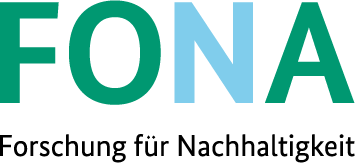Coordination
Research Institute for Water Management and Climate Future at RWTH Aachen University
Kackertstr. 15–17
52072 Aachen
As a member of the JRF research community, FiW is funded by the state of North Rhine-Westphalia.
Scientific Coordinator
Univ.-Prof. Dr.-Ing. Johannes Pinnekamp
Project Manager
Dr.-Ing. Kristoffer Ooms
Phone +49 241 80 2 68 22
ooms@fiw.rwth-aachen.de
Project Team Member
Sophia Schüller, M.Sc.
Phone +49 241 80 2 68 17
schueller@fiw.rwth-aachen.de
Partner institutes
HGoTECH GmbH
Prof.-em. Dr. Goldbach
INAB der RWTH Aachen University Institut für Nachhaltigkeit im Bauwesen
Univ.-Prof. Dr. Ing. Marzia Traverso
TUTTAHS & MEYER Ingenieurgesellschaft
für Wasser-, Abwasser- und
Energiewirtschaft mbH
Prof. Dr.-Ing. Markus Schröder
Funding period
01.12.2019 – 30.06.2025
Scientific accompanying project TransPhoR

Abstract
The scientific accompanying project TransPhoR is concerned with the synthesis of the results of the joint projects as well as with accompanying technical questions. Furthermore, it supports the coordination of the funding measure and prepares the results of the individual projects for specific recipients.
Aim
In the funding measure RePhoR, knowledge and practical experience in phosphorus recovery on large-scale plants are generated as basis for the future implementation of the amended Sewage Sludge Ordinance. The networking and transfer project TransPhoR supports the entire realisation phase. It accompanies the projects, prepares the results of the different phosphorus recovery processes for different target groups and helps to introduce the funding measure to the public. An important task is to ensure the usability and comparability of the results of the individual projects. Further goals of the accompanying project are the processing of comprehensive scientific questions. Specifications for the sustainability analysis will be defined and passed on to the project partners in order to make the three columns of a LCA of the different projects comparable. In addition, the plant availability of the recyclates will be evaluated in order to enable a quality and usability assessment. The investigation of these questions allows a well-founded evaluation of the individual projects and provides assistance for the parties, which have to make a decision regarding the implementation of a phosphorus recovery process for the individual case of conditions. Thus, under consideration of economic, ecological and social aspects, the overall goal can be pursued to strive for a sustainable and regional phosphorus recycling. The accompanying project TransPhoR bundles answers for the future handling of one of the most important resources in the field of wastewater and the compliance with the new recovery obligations of the Sewage Sludge Ordinance and transfers them to experts.
Focus of work
The focus of work of the accompanying project TransPhoR deals with organizational tasks and technical questions, which are presented in the following:
- The project results and findings of the joint projects are documented, analysed and systematically processed by FiW Aachen throughout the entire duration of the funding measure. Information material will be prepared and published, which can be used for further steps and as decision support for the selection of a suitable phosphorus recovery method.
- Project management and the organization of work and status meetings is a superordinate task that is carried out by FiW. FiW also takes care of the external presentation of the project contents and results via design, publications, and web presence as well as the presentation of the research project at conferences. The content is thus summarized and made accessible for various target groups.
- In order to ensure a continuous successful exchange of knowledge close networking with national and international actors is important. Networking will be a major task of Prof. Dr. Markus Schröder as subcontractor of FiW. In addition, further cross-sectional topics are identified and discussed with relevant stakeholders.
- As a further focus of work, standardized test methods and test criteria for phosphorus recyclates are reviewed and developed. For this purpose, plant growth experiments, which serve to determine the plant availability of the produced phosphorus recyclates, will be performed by HGoTECH GmbH.
- A legal workshop with specialized attorneys serves the clarification of open questions in connection with the amendment of the Sewage Sludge Ordinance and the use of phosphorus recyclates.
- In the last work package, general criteria will be developed that allow a comparative assessment of the profitability and life cycle of the developed processes. Finally, a holistic sustainability assessment of the regional phosphorus recycling approaches will be made. This task will be carried out jointly by INaB, HGoTech and FiW.

